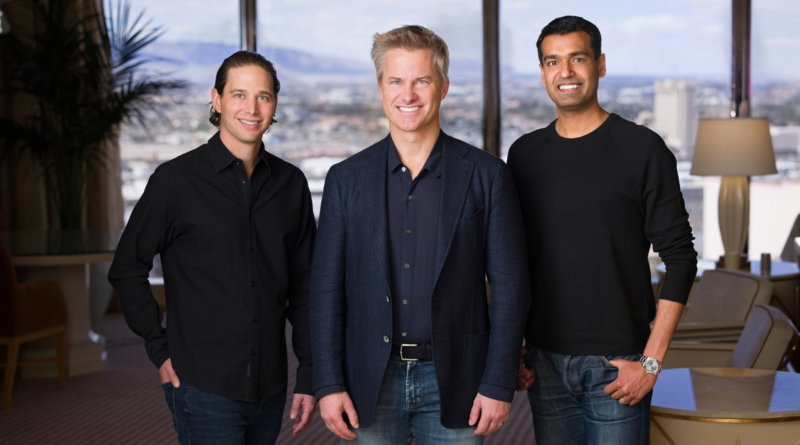Kevin Hartz’s A* raises its second oversubscribed fund in three years
Venture firms raised $9.3 billion in Q1 according to PitchBook data, which means this year likely won’t match or surpass 2023’s $81.8 billion total. While emerging managers are feeling the fundraising market’s frost the most, some emerging VCs like A* have enough name recognition, and a good enough track record, to still find success.
A*, led by former Eventbrite founder Kevin Hartz, former Coatue partner Bennett Siegel and former Opendoor and Uber operator Gautam Gupta, raised $315 million for its oversubscribed Fund II. The firm plans to continue its focus of leading seed rounds and doubling down on portfolio companies at the Series A, in addition to making select new investments at the Series B stage.
“We found our product market fit is really at the seed and inception stage, partnering with founders on zero to one while continuing to back the breakouts in our portfolio,” Siegel said. “That’s where we have been the most successful.”
Zero to one is a reference to Peter Thiel’s book of the same name. It is VC parlance that means turning a new, unproven concept into a company with a product and customers, as opposed to a startup that mimics or expands on an existing idea.
The fund will continue to be generalist and invest across different industries. Gupta said that they like to find the right founders and follow them to whichever industry they are building in. Right now, that means the firm is spending a lot of time in AI and the resurgence of consumer tech.
“Everything takes care of itself when you back the right people” Gupta said.
The one noticeable change between Fund I and Fund II is the vehicle’s LP base. Fund II was raised entirely from institutional investors whereas Fund I was backed by many well-known VCs and former operators. Max Levchin, David Sacks and Peter Thiel of former PayPal fame were all Fund I backers in addition to the co-founder and CEO of DoorDash, Tony Xu, and the co-founder and president of Opendoor, Eric Wu, among others.
Switching to institutional investors is not uncommon at the Fund II stage, another VC firm just told me this week after doing the same thing. This is because firms have enough of a track record to attract institutional investors and these deep-pocketed investors become necessary as firms look to grow their fund sizes down the road.
A* isn’t looking to raise as much money as it can though. It intentionally kept Fund II at just a modest step up from the firm’s first fund — Fund I raised $300 million, surpassed its $250 million target, and closed in 2021.
“Fund size is strategy and strategy is fund size,” Siegel said. “We want to be the preferred partner but small enough that we can focus on generating incredible returns for our investors. We wanted to focus on mentorship and not necessarily just deploying large funds of capital.”
The company backed 35 startups in Fund I, including fintech startup Ramp, workflow tool Notion and wholesale marketplace Faire, all at Series B or beyond. It also led the seed rounds for companies like AI startup EyeTell, recruiting marketplace Paraform and primary care startup Aligned Marketplace. The firm incubated three companies as well, which are still in stealth.
The firm thinks it stands out from the very crowded seed market because of its three founding partners and their vast set of experience across industries and three different decades.
Hartz’s name recognition in the tech space probably doesn’t hurt either. Hartz launched and scaled both Eventbrite and Xoom through their respective exits before serving a stint at Founders Fund and angel investing into companies including Gusto, Pinterest and Reddit. Gupta was the former head of finance at Uber and COO and CFO at Opendoor. As an investor at Coatue, Siegel backed Peloton, Instacart and DoorDash, among others.
The group had known each other for years before they started talking about launching a fund in late 2020. Now they are looking to use this latest fund to continue finding and backing great early-stage founders in a very different market than the firm initially launched in.
“The challenge of our era is companies don’t die from starvation but instead indigestion,” Hartz said. “We can really help these companies that are hungry for the insights and want all that assistance to get from zero to one where capital is a plenty.”




